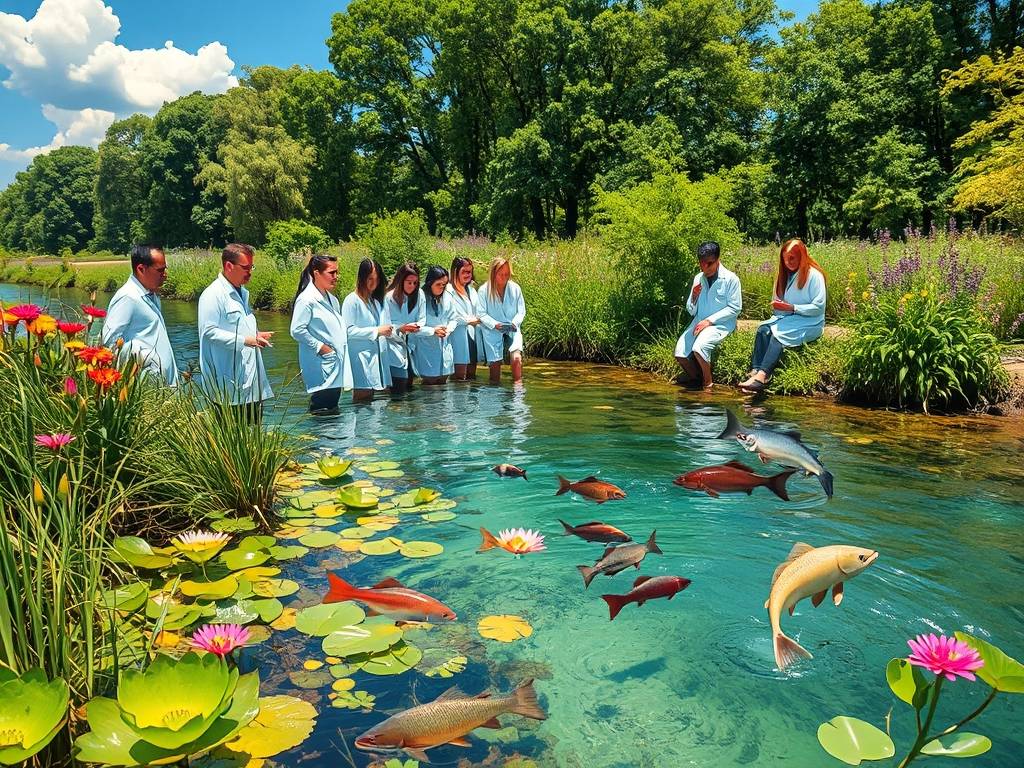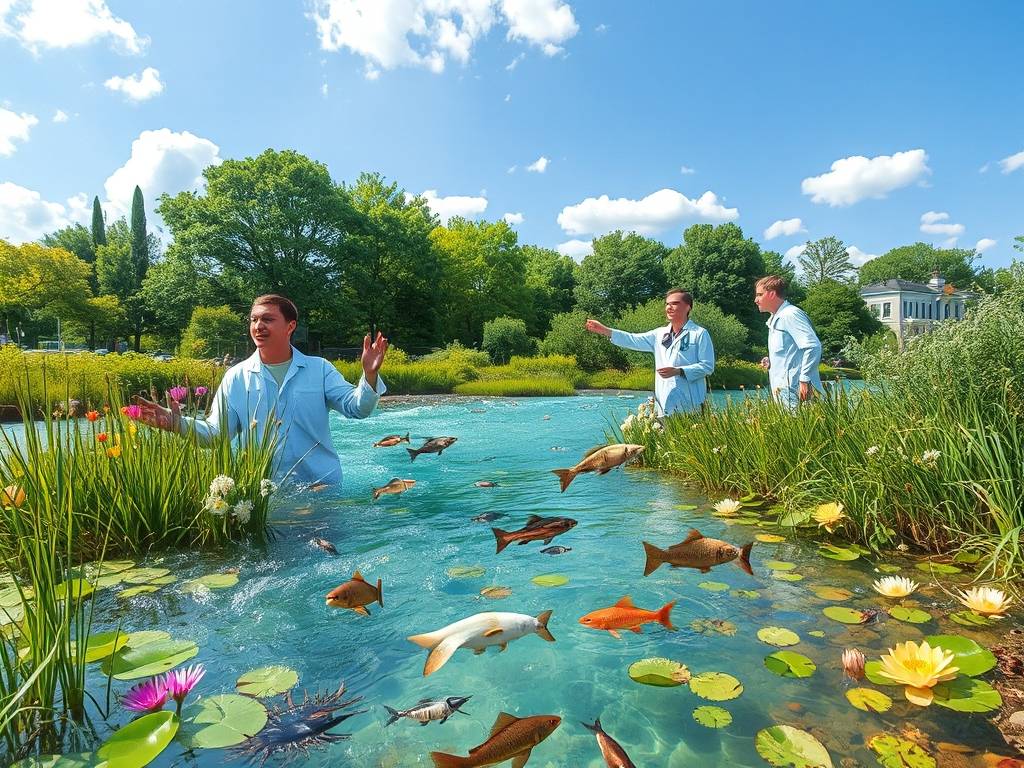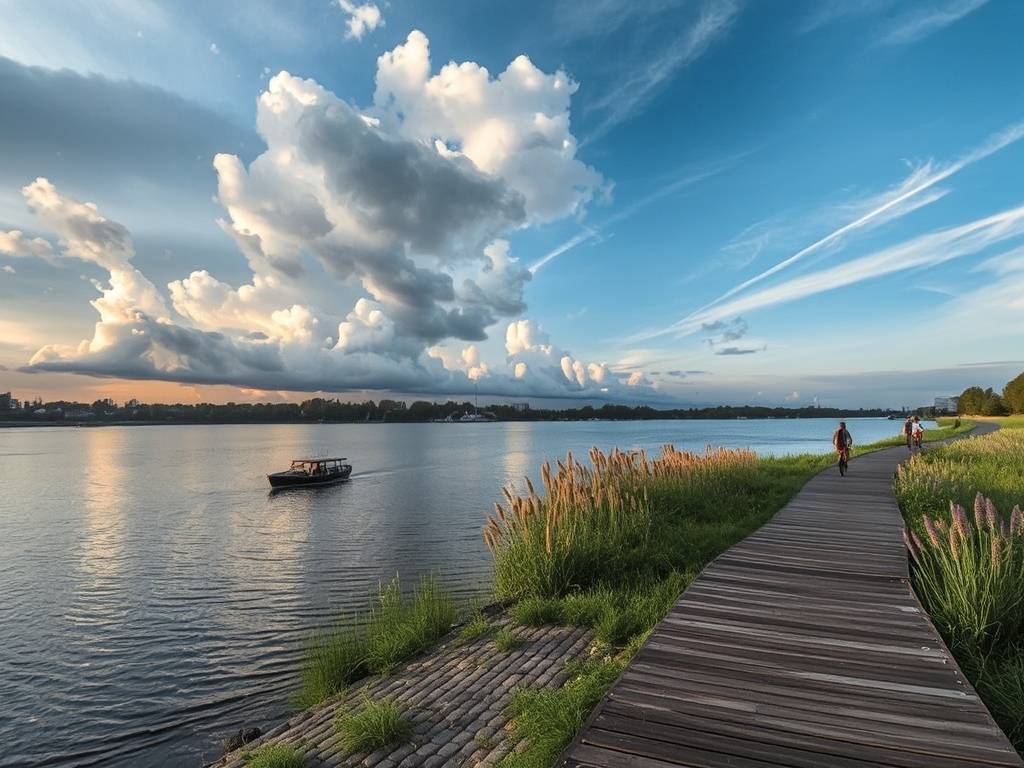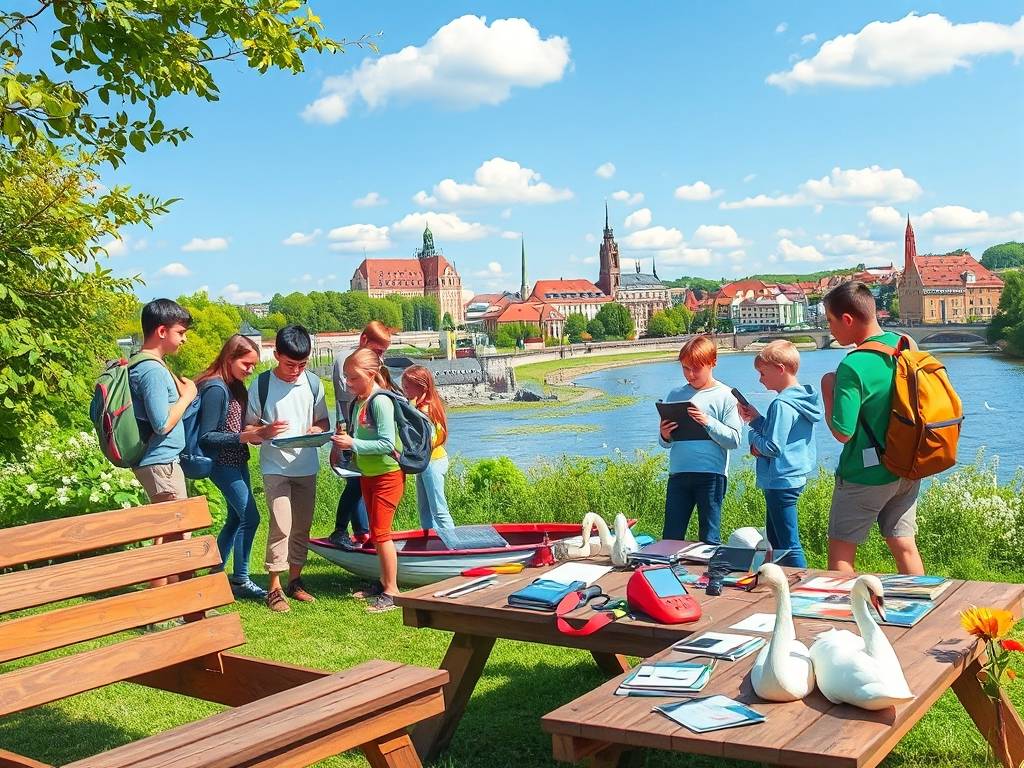Global Travel Information
Elbe River Science Tours: Explore the River’s Ecosystem
Discovering the Lifeline: An Elbe River Science Tour for the Curious Explorer
Have you ever stood on the banks of a great river and wondered about the hidden world flowing before you? The water’s surface tells only a fraction of the story. Beneath it lies a dynamic, intricate ecosystem, a liquid highway of life, history, and science. This is the magic of the Elbe River, one of Central Europe's most significant waterways, and there is no better way to truly understand it than by embarking on an Elbe River Science Tour.
An Elbe River Science Tour is more than just a boat trip; it's an immersive educational journey. It’s designed for anyone with a curious mind—families, students, nature enthusiasts, or travelers seeking a deeper connection with the landscapes they visit. These tours transform you from a passive observer into an active participant in the river’s story. You’ll learn to read the river’s signs, understand its challenges, and appreciate its remarkable resilience.

So, what exactly can you expect to discover on such a scientific exploration of the Elbe River ecosystem?
The Living Pulse of the River: Flora and Fauna
The journey often begins with the most visible residents: the birds. The Elbe River biosphere reserve, a UNESCO-recognized treasure, is a critical stopover on the migratory routes of countless bird species. From the deck of a quiet, eco-friendly vessel, you might spot majestic white-tailed eagles soaring overhead, their keen eyes scanning the water for fish. You'll learn to identify the elegant grey herons standing motionless in the shallows and the cacophonous flocks of geese that seasonally populate the wetlands. Ornithologists and guides explain the importance of these floodplains and sandbanks as vital nesting and feeding grounds, making your Elbe River bird watching experience truly enlightening.
But the ecosystem extends far beyond what the eye can immediately see. A core component of the Elbe River ecosystem exploration is understanding the aquatic life. Scientists on board often demonstrate water sampling techniques, allowing you to see the tiny plankton that form the base of the entire food web. You'll discover how the health of these microscopic organisms directly impacts the larger species, such as the Atlantic salmon and the North Sea houting, which are subjects of ongoing sustainable fish population management in the Elbe. The guides will explain the fascinating journey of the river lamprey, an ancient, eel-like creature that tells a story of evolutionary success and ecological sensitivity.

Along the banks, a different world thrives. The riparian forests and meadows are home to beavers, whose dam-building activities naturally reshape the landscape, creating new habitats for other species. You’ll learn about the delicate balance of the flora, from the mighty oaks to the reeds that filter the water and prevent erosion. This is a hands-on lesson in biodiversity and why each plant and animal, from the smallest insect to the largest mammal, plays a non-negotiable role in the health of the Elbe River biosphere reserve.
The River’s Backbone: Geology and Hydrology
To understand the life of the Elbe, one must first understand its physical structure. A science-focused Elbe River cruise delves into the hydrology and geology that have shaped this landscape over millennia. Where did the river come from, and where is it going? Guides use maps and models to illustrate the Elbe's path from the Giant Mountains in the Czech Republic to the North Sea in Germany.
You'll learn about the river’s dynamic nature—how it meanders, carves new channels, and deposits sediments to create the very floodplains that are so ecologically rich. A key topic of discussion is the historical and ongoing efforts in Elbe River floodplain restoration projects. For decades, river management focused on straightening and embanking the Elbe to protect agricultural land and settlements. While sometimes necessary, this "taming" of the river had severe ecological consequences. Today, scientists are working to reconnect the river with its floodplains, a complex process you will understand in detail. These projects are not just about ecology; they are a brilliant example of natural flood protection, as these restored areas act like giant sponges, absorbing excess water during heavy rains.
The quality of the water itself is a central theme. The Elbe has a remarkable story of recovery. From being one of the most polluted rivers in Europe during the communist era, it has undergone a dramatic cleanup. On your tour, you’ll see demonstrations of water quality monitoring on the Elbe River. You might even get to use a Secchi disk to measure water clarity or learn about the parameters scientists test for—oxygen levels, nutrient loads (nitrates and phosphates), and pollutant traces. This makes the abstract concept of "clean water" tangible and underscores the importance of continuous environmental protection efforts for the Elbe.
Human River, Natural River: A Story of Coexistence
The Elbe is not a wilderness river; it is a working river, a central artery for human civilization for centuries. A comprehensive Elbe River Science Tour doesn’t shy away from this reality but instead explores the complex and evolving relationship between humans and the river. You’ll pass historic towns like Dresden, Magdeburg, and Hamburg, and discuss how these cities have both depended upon and impacted the river.
The topic of navigation and the impact of shipping on the Elbe River ecosystem is addressed with scientific objectivity. You’ll learn how ship waves contribute to bank erosion and how the maintenance of shipping channels can affect sediment flow and habitats. The tour presents the ongoing search for a balance between economic needs and ecological health, including innovations in river habitat conservation strategies that aim to mitigate these impacts.
Perhaps the most empowering part of the tour is learning about the role of citizen science in monitoring the Elbe. Many conservation projects rely on data collected by trained volunteers—ordinary people who help count birds, survey amphibians, or report pollution incidents. Your tour will likely connect you with these initiatives, showing you how you can contribute to the river’s health long after your journey ends. This transforms the experience from a simple holiday activity into a potential lifelong interest.
Your Journey Awaits
An Elbe River Science Tour is a profound adventure that changes your perspective. You will no longer see just water; you will see a living, breathing system. You will understand the interconnectedness of geology, water, plants, animals, and human activity. You will gain a deep appreciation for the scientists, conservationists, and citizens working tirelessly to protect this vital lifeline.
It is an engaging, fun, and profoundly educational experience that answers not just the "what" but the "why" and the "how." It equips you with the knowledge to become an ambassador for the Elbe and for rivers everywhere. So, pack your curiosity, a good pair of binoculars, and a desire to learn. The Elbe is waiting to share its secrets with you.
相关文章
- Elbe River Volunteer Opportunities: Help Protect the Waterway
- Elbe River Conservation Efforts: How to Support the Environment
- Elbe River Clean-Up Events: Join a Local Initiative
- Elbe River Educational Programs: Learn About Ecology
- Elbe River School Trips: Educational Excursions for Students
- Elbe River Weather Forecast: Plan Your Day Along the Water
- Elbe River Climate Information: Average Temperatures Year-Round
- Elbe River Wind Conditions: Tips for Boaters & Cyclists
- Elbe River Rain Gear: Stay Dry During Your Visit
- Elbe River Sun Protection: Stay Safe in the Summer
发表评论
评论列表
- 这篇文章还没有收到评论,赶紧来抢沙发吧~


